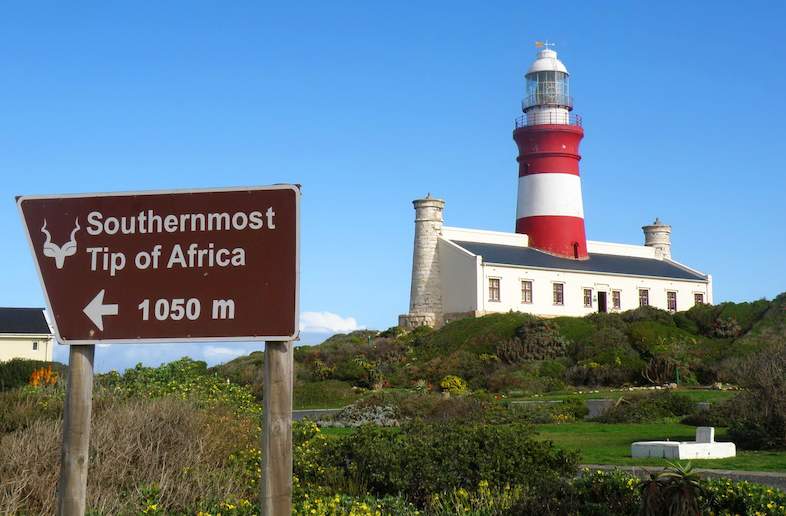Agulhas National Park is a protected area located at the southernmost tip of Africa, where the Indian and Atlantic Oceans meet. The park is home to a diverse range of flora and fauna, including rare fynbos vegetation and endemic bird species. With its unique location and natural beauty, it is a popular destination for nature lovers, hikers, and those seeking to experience the raw beauty of Africa’s southernmost point.
Table of Contents
History of Agulhas National Park
Agulhas National Park was established in 1999, following the merger of the former Cape Agulhas and Struisbaai Nature Reserves. The park was created to protect the region’s unique biodiversity, which includes the fynbos vegetation, a rare and endangered plant species found only in South Africa. The area is also home to a number of endemic bird species, including the Cape Sugarbird, the Orange-breasted Sunbird, and the African Penguin.
The Agulhas region has a rich cultural heritage. The Khoisan people, who are believed to be the region’s earliest inhabitants, were followed by the arrival of the Dutch and British colonizers in the 17th and 18th centuries. Today, the region is home to a diverse population of South Africans, including the descendants of these early settlers.
Flora and Fauna of Agulhas National Park



Agulhas National Park is home to a diverse range of flora and fauna, including rare and endangered species found only in South Africa. The region’s vegetation is dominated by fynbos, a unique and highly diverse plant species that is found only in the Cape Floristic Region. Fynbos is characterized by its low-growing, hard-leaved shrubs, which thrive in the nutrient-poor soils of the region. In addition to fynbos, the park is also home to coastal dune vegetation, wetlands, and forests.
The park is also home to a wide range of wildlife, including large mammals such as eland, bontebok, and Cape Mountain zebra. Other notable species found in the park include the African penguin, the Cape clawless otter, and the black harrier. The region is also an important breeding ground for a number of bird species, including the Cape vulture, the black eagle, and the blue crane.
Things to Do in Agulhas National Park

Agulhas National Park offers a wide range of activities for visitors, including hiking, bird watching, and wildlife viewing. The park has a number of well-marked hiking trails, ranging from easy walks to more challenging hikes that take visitors through the park’s rugged landscape and provide stunning views of the coastline. One of the most popular hiking trails is the Heuningberg Nature Reserve trail, which offers panoramic views of the surrounding countryside and is home to a variety of bird species.
For those interested in wildlife viewing, the park offers a number of game drives and guided tours. Visitors can also explore the park on horseback or mountain bike, or take a leisurely stroll along the park’s scenic beaches. If you want you can take a short trip to pearly beach for a seaside experience you don’t want to miss.
One of the main attractions is the Cape Agulhas Lighthouse, which is located at the southernmost tip of Africa. Built-in 1848, the lighthouse has been in operation for over 150 years and offers stunning views of the surrounding coastline. Visitors can climb to the top of the lighthouse for panoramic views of the ocean and the park.
Another popular attraction is the Agulhas National Park Museum, which offers a fascinating insight into the region’s natural and cultural heritage. The museum features exhibits on the park’s flora and fauna, as well as its cultural history and the early explorers who sailed along the coast.
Accommodation in Agulhas National Park
Agulhas National Park offers a variety of accommodation options for visitors, ranging from basic camping facilities to luxury self-catering cottages. The park has two campsites, one at Rasperpunt and the other at Suiderstrand, both of which offer basic facilities and stunning views of the surrounding countryside. Visitors can also choose from a range of self-catering cottages and chalets, which offer more luxurious accommodation and are equipped with all the necessary amenities.
For those seeking a more exclusive experience, the park has a number of private lodges and guesthouses, which offer luxurious accommodations and personalized service. These lodges are located in some of the park’s most scenic locations and offer stunning views of the surrounding countryside.
Geography and Climate of Agulhas National Park
Agulhas National Park is situated at the southernmost tip of Africa, where the Indian and Atlantic Oceans meet. The park is bordered by the towns of L’Agulhas, Struisbaai, and Bredasdorp, and is approximately 200 kilometres southeast of Cape Town. The region is characterized by a rugged coastline, rolling hills, and sweeping plains, which provide a habitat for a diverse range of flora and fauna.
The climate is generally mild, with cool temperatures and moderate rainfall throughout the year. The summer months (December to February) are warm and sunny, with temperatures ranging from 18°C to 28°C. Winter (June to August) is cooler, with temperatures ranging from 8°C to 18°C. The region is known for its strong winds, which can create challenging conditions for outdoor activities.
Agulhas National Park is a truly unique destination, offering visitors the opportunity to explore one of the most rugged and beautiful regions of South Africa. With its stunning coastline, diverse flora and fauna, and rich cultural heritage, the park is a must-visit destination for anyone interested in the natural and cultural history of the Cape region.
Whether you’re looking to hike along the park’s scenic trails, explore its wildlife on a game drive, or simply relax and soak up the natural beauty of the region, Agulhas National Park has something to offer everyone. So why not plan your visit today and experience the magic of Africa’s southernmost point?
Website: https://www.sanparks.org/parks/agulhas/
FAQ
- Q – Is there an entrance fee to visit Agulhas National Park?
A – Yes, there is an entrance fee to enter Agulhas National Park. The fee may vary depending on the type of visit, such as day visits or overnight stays. It is recommended to check the official website or contact the park authorities for the latest information on fees. - Q – Can I visit Agulhas National Park as a day trip from Cape Town?
A – Yes, Agulhas National Park is a popular day trip destination from Cape Town. It takes approximately 3 hours to drive from Cape Town to the park. Visitors can explore the park’s attractions and return to Cape Town on the same day. - Q – What is the best time to visit Agulhas National Park?
A – Agulhas National Park can be visited throughout the year. The summer months (December to February) offer warm temperatures and longer days, while the winter months (June to August) may bring cooler weather. Wildlife viewing and birding can be particularly rewarding during the spring and summer seasons. - Q – Is Agulhas National Park suitable for families with children?
A – Yes, Agulhas National Park is suitable for families with children. There are designated areas for swimming, picnicking, and recreational activities. However, it is important to adhere to park regulations and keep children under supervision, especially near the coastline. - Q – Are there guided tours available in Agulhas National Park?
A – Yes, guided tours and activities are available in Agulhas National Park. Visitors can choose from various guided hikes, nature walks, and other organized tours to enhance their experience and knowledge of the park’s unique ecosystem.
Other Must-See National Parks In The Cape
Tsitsikama National Park: is a captivating nature reserve along the country’s Garden Route. Spanning lush forests, dramatic cliffs, and a pristine coastline, it offers a haven for hikers, adventurers, and nature enthusiasts. Visitors can explore stunning trails, enjoy thrilling activities, and encounter diverse wildlife in this breathtaking natural paradise.
Karoo National Park: a stunning wilderness retreat with breathtaking landscapes. It’s got everything from rugged mountains to vast plains and desert-like areas. The park is a haven for a variety of plants and animals, like black rhinos and mountain zebras. Visitors can hike, go on exciting game drives, and marvel at the starry skies.







